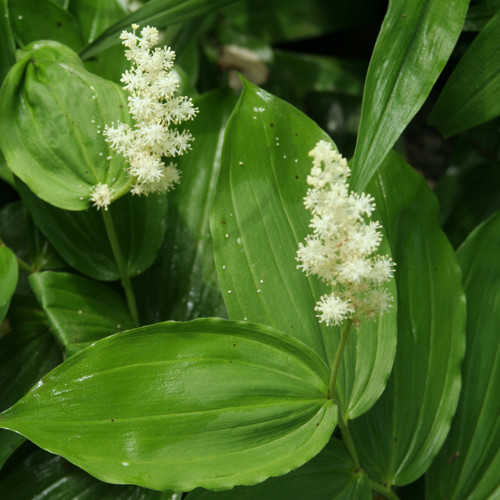Solomon's Seal grows in a variety of conditions, though it is often found in woodlands with fertile, loamy soil. For those looking to replace their non-native hostas, Solomon's seal is a fantastic alternative. The foliage lasts all season, and showy blue berries develop toward the end of summer below long, arching stems. Unfortunately, it is favored by deer and isn't suited for areas with dense deer populations (though the plants will survive occasional browsing). The cream colored flowers are visited mostly by bees and hummingbirds. Solomon's seal spreads slowly by rhizomes. The rhizomes and young shoots of the plant are edible, though the berries are not.
Uses: Bees, edible, historically medicinal
Bloom time: May to June
Height: 2 to 4 feet
Space: 1 to 2 feet
Sun: Sun to shade
Moisture: Average to moist



